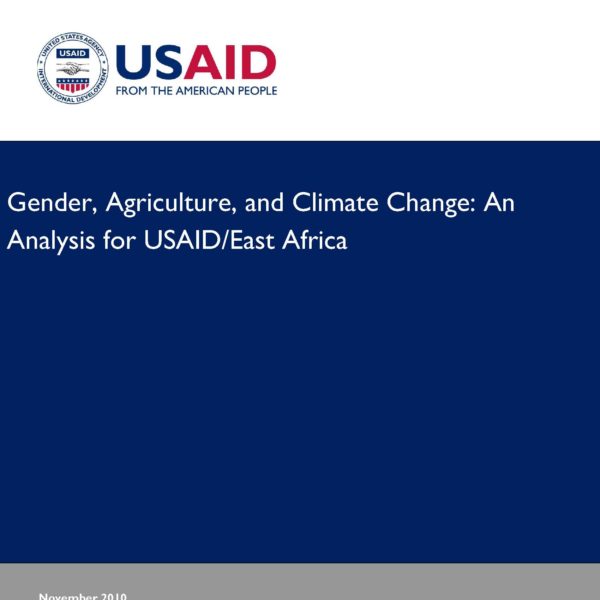Executive Summary: This report reviews the gender implications of the activities of the United States Agency for International Development/East Africa (USAID/EA) Regional Economic Growth and Integration (REGI) program with particular reference to the Feed the Future and the climate change initiatives. In East Africa, there is a need to incorporate gender dimensions into local, national and regional climate change programs and discussions. There is a common recognition that the poor and marginalized will experience the impacts of climate change most acutely and that they have the least capacity to adapt, and that women and girls make up a disproportionate number of the poor or marginalized. Addressing this in East Africa is challenging because of the high level of social and environmental heterogeneity. Addressing climate change in intensive farming systems will be very different from those in agro-pastoral systems, for example. Climate change responses will need to be flexible, multiple and locally specific. Adaptation and mitigation policies and programs could potentially exasperate existing inequalities, and their success depends on addressing these potential issues.
A large knowledge gap exists in how climate change is expected to impact key sectors in East Africa, including agriculture, water and energy. An even larger knowledge gap exists in what adaptation and mitigation strategies would be successful, where, and for whom. USAID/EA could contribute to reducing the gaps by supporting science-based, gendered analyses of potential strategies, and their economic and social effects. This would involve capacity building of women and men to have the knowledge, skills and voice to engage in climate change program debates from the local to the international arena, and developing institutional mechanisms to encourage this integration. Cross-border and regional policies and programs will be critical in the energy, water and agricultural sectors, and many have gender implications.

